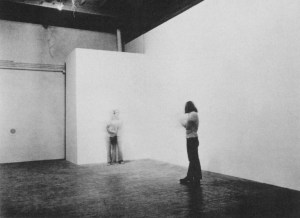A CHCI Medical Humanities Network / Duke Health Humanities Lab@FHI Symposium: NEURODIVERSITIES //
Oct. 26-27, 2018, Franklin Humanities Institute, Duke University //
The term “neurodiversity,” first popularized by the autism community, challenges the pathologization of neurological deviation from a conventional social spectrum of “neurotypicality.” Another branch of “neurodiversity” discourse challenges the abstraction of the ideas of “mind” and “mental” states, using tools of empirical neuroscience to dismantle binaristic divides between “brainhood” and “embodiment.” In the spirit of both, keynote speaker Ralph Savarese invites readers to be proactive in exploring literature’s capacity “to stimulate embodied experience by activating nonlinguistic areas in the reader’s brain” in a way that comes as “close to an autistic way of engaging with the world as any form of language will allow.” The Friday schedule includes a panel by Duke faculty on topics such as Flaubert’s epilepsy and the counter-narrative of injured self, the technological and phenomenological non-conscious, and psychoanalysis and neuroscience. Keynote speaker Richard E. Keller takes on yet another “neurodiversity”: the challenge to Western cultural normativity involved in the growing globalization of psychiatry since the 1990s. An exciting public event occurs on the evening of Friday October 26: the screening of the Peabody award-winning documentary Deej led by filmmaker and author DJ Savarese, using a text-to-voice synthesizer for dialogue with the audience. Saturday, the symposium shifts to interactive workshops at which faculty, students and community members are welcome. They will learn about poetry and autism in DJ Savarese’s workshop and in another workshop, address campus structures and initiatives to shore up student resiliency and to make a home for neurodiversities in universities.
Co-Sponsors: UNC Institute for Arts & Humanities & HIVE; DIBS/FHI Neurohumanities Research Group
More information to come. Contact Person: Katherine Berko


